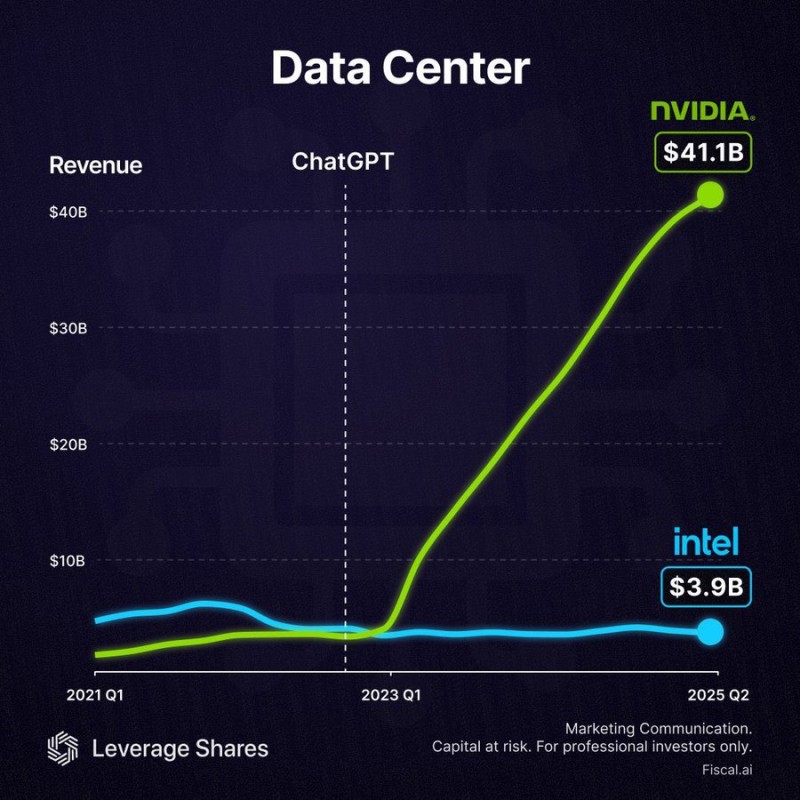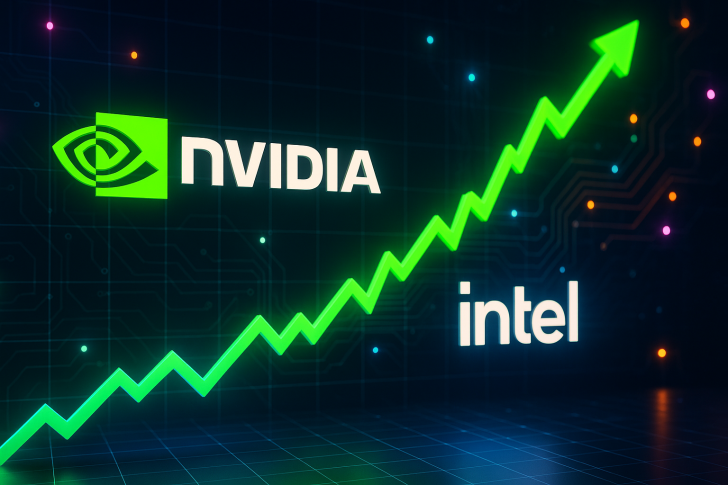Three years ago, ChatGPT didn't exist. Now, it's hard to imagine a world without generative AI—and the tech industry has been completely reshaped because of it.
What the Chart Reveals
A chart recently shared by markets analyst The Kobeissi Letter captures this transformation perfectly: it shows Nvidia's data-center revenue shooting up like a rocket after ChatGPT's launch, while Intel's stays nearly flat. The moment "ChatGPT" appears on the timeline looks like someone flipped a switch on the entire computing industry.

The visual tells a powerful story in three parts:
- Nvidia's revenue exploded from AI demand — jumping from under $10 billion in early 2023 to $41.1 billion by Q2 2025, fueled by massive orders for GPU hardware that powers AI training and inference
- Intel's revenue flatlined during the same period — hovering around $4 billion as the market shifted away from traditional CPU-centric data centers toward GPU-accelerated compute
- ChatGPT marked the inflection point — a vertical dotted line on the chart shows exactly when Nvidia's curve goes parabolic, perfectly aligning with the generative AI boom
Why Nvidia Won and Intel Didn't
The gap isn't just about better chips—it's about positioning. Training massive language models like GPT-4 requires thousands of GPUs running in parallel, something Nvidia's CUDA ecosystem was built for. Cloud giants like Microsoft, Google, and Amazon poured billions into Nvidia hardware to build AI superclusters. Meanwhile, Intel's legacy CPU architecture simply wasn't designed for this shift, leaving it on the sidelines as the AI wave rolled in.
This isn't a temporary spike—it's a structural shift. Data centers are being rebuilt around AI. Nvidia has become the world's most critical infrastructure supplier. And with next-generation models like GPT-5 on the way, AI compute demand is expected to keep doubling every 12–18 months. Intel, AMD, and a wave of AI chip startups are gearing up to compete, but for now, the chart makes one thing crystal clear: Nvidia rode the AI wave, and Intel missed the boat.
 Peter Smith
Peter Smith

 Peter Smith
Peter Smith


